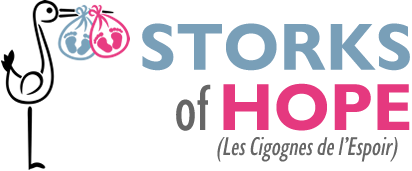Interview with Agathe Morichelli: sophrologist, hypno-practician and physio-nutritionist
Hello Mrs Morichelli. What is your educational background?
I left school with a Baccalauréat in Economic and Sociology, and pursued a professional diploma in hotel management. This led to a 20-year career in the hotel and retail industries.
Why did you choose sophrology?
The physiological exhaustion of this job led me to change careers. I started with Argentine Tango, by giving dance lessons. I quickly realised that my students were very stressed, very tense. This type of dance requires a lot of letting go, body control and breathwork, hence why it's used so much in therapy. I therefore decided to retrain in sophrology, which would be a perfect complement for my dance classes because it uses these three exercise techniques. After 2 years of training, I made sophrology my main profession.
Can you tell us more about the neuro-hormono-ventilatory balance?
The balance of our body as a whole depends first and foremost on good oxygenation. In order to function, our mitochondria first need a molecule of oxygen, which show how important this is! ‘Furthermore, according to scientific studies in the United States (Massachusets Institute Hospital) by the researcher Richard Kradin, there is a mind-brain-lungs link.’ - ESA School of Sophrology.
Our homeostasis depends on our ability to oxygenate our cells correctly, and in sufficient quantities, so that our entire organism is nourished by our primary fuel: oxygen. Hence the need for ‘original abdominal breathing’.
If this balance is not maintained, an alarm is activated: oxidative stress (adrenalin, noradrenalin, cortisol). Cortisol levels rise and take hold, causing unlimited damage to our biology.
Of course, the quality of our hydration and nutrients plays an active part in maintaining this balance. To look after our endocrine system, we need to look after our body as a whole.
As far as fertility is concerned, I like to say: ‘Imagine wanting to sow new plants on an uncultivated, low-fertility plot of land. To prepare and fertilise it, you'll need to:
- Firstly, weed the soil, i.e. get rid of unnecessary tension and anything that's toxic to the proper functioning of your body.
- Secondly, plough the soil, this is the phase of psychosomatic upheaval and awareness-raising.
- Thirdly, let the soil rest and nourish it properly. Yes, your body needs rest to prepare itself for ‘renewal’.
- Fourth, sow and harvest. Let fertility take its course.
Preparing the nest means preparing the ‘womb’ to welcome new life and preparing your ‘plot of land’. This also applies to men.
Does this balance represent the link between fertility and sophrology? What aspects of infertility does sophrology address?
Sophrology helps you through all these stages. It is based on the ‘NEURO-HORMONO-VENTILLATORY’ link. It eliminates tension due to oxidative stress, enables you to let go, to become aware of the body, how it functions and above all to reactivate original abdominal breathing in order to reoxygenate all the cells in your body (mitochondria). Mindfulness breathing exercises at an Alfa brain level, as well as ‘positive action’, are designed to stimulate the pituitary gland and the thalamic nucleus in order to reactivate the happiness hormones serotonin, oxytocin, dopamine and others. The positive impact on the endocrine system can be immediate. I have observed reduction in pain during the menstrual cycle with patients suffering from endometriosis. A re-oxygenated, hormonally balanced body can encourage ovarian release and increase sperm quality.
How does a sophrology session work from A to Z?
A sophrology session proceeds as follows. The sophrologist will welcome you then, listen and observe your ventilatory system. They will prepare the body to let go in order to receive or work on abdominal breathing. These guided exercises constitute a positive action in full consciousness to reach the Alpha state. The exercises can be recorded if necessary. They should be integrated into a daily routine and repeated regularly. Several sessions are required to complete this treatment.
Is there a follow-up? for the partner affected by the fertility problems, or for both?
In the context of IVF, follow-up sessions are essential, and the partner can choose to practise sophrology or not. However, in my experience, it is more successful when the couple commits to this therapy together.
Are there people who are not sensitive to sophrology? How do you know and what do you do? Why does sophrology generally not work for these people?
Some people are not ready for therapy; they are emotionally resistant. The only thing to do is to make them aware of their situation and wait until they are receptive. Patience and trust in the therapist are therefore essential.
For people who are receptive to sophrology, how many sessions do you recommend?
The number of sessions can never be planned in advance, as each person will go at their own pace depending on their genetics, epigenetics, emotional history, and any prior illnesses, etc.
What other activities do you refer your patients to in order to complete their fertility treatment?
I work closely with osteopaths and a sexologist. I've also trained in hypnosis and physio-nutrition, in order to offer a holistic approach.

